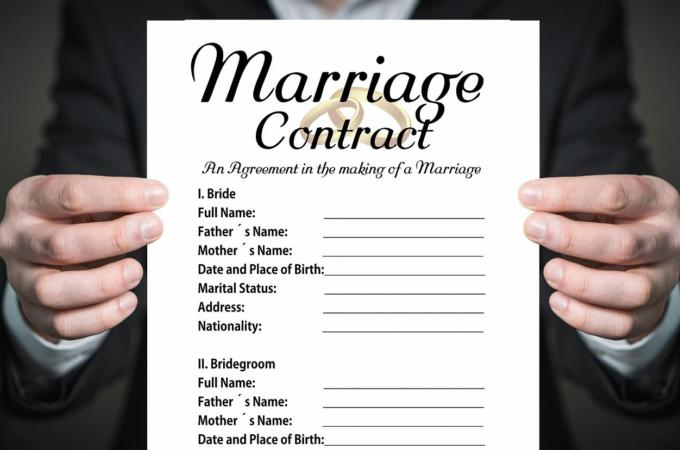Annulment necessary?
Q. I was married by a minister/attorney 40 years ago. My husband was Jewish, and the marriage ended in a divorce after nine months. I now want to marry a man who is a widower. We are both active Catholics, and we want to be married in the church. Will I need to apply for an annulment? If so, how long will it take? (Santa Barbara, California)
A. This is an easy one -- both for me to answer and for you to carry out. I am assuming here that 40 years ago you never received the Catholic Church's permission to marry in an other-than-Catholic ceremony. If that is true, you do not need now a full-scale annulment process (which normally can take upward of a year).
Instead, you simply need an administrative proceeding -- called, technically, a "declaration of nullity for absence of canonical form." This would involve your meeting with a priest and filling out some short paperwork regarding your earlier wedding -- where it took place, who officiated, etc.
The priest would then submit this petition to your diocese requesting a formal declaration that the earlier ceremony did not constitute a valid Catholic wedding -- which would then leave you free now to marry in a Catholic ceremony. This would almost surely be a relatively quick process.
One California diocese, for example, says on its website that "a typical administrative declaration of nullity in the Diocese of Oakland would take about three weeks to obtain, once the necessary papers have been sent to the tribunal office."
Q. I know that there is some leeway as to whether to receive the Eucharist in the mouth or in the hand -- and also as to whether to receive kneeling or standing. But what about the "Amen" response just before taking Communion?
When the priest says, "body of Christ," is it ever appropriate to say something different, such as "yes," "I believe" or even "thank you"? Or what if the recipient simply says nothing at all? With any of these or other possible responses, could the priest refuse to serve Communion? (southern Indiana)
A. The response to "the body of Christ" is "amen." In the liturgical guidelines, there is no suggestion of -- or permission for -- an alternative response. The General Instruction of the Roman Missal, the official "rulebook" of the church on liturgy, says: "The priest raises the host slightly and shows it to each, saying, the body of Christ. The communicant replies, amen, and receives the sacrament" (No. 161).
The U.S. Conference of Catholic Bishops document "Norms for the Distribution and Reception of Holy Communion" explains that "the act of Communion, therefore, is also an act of faith. For when the minister says, 'the body of Christ' or 'the blood of Christ,' the communicant's 'amen' is a profession in the presence of the saving Christ, body and blood, soul and divinity, who now gives life to the believer" (No. 14).
I'm sure that part of the reason for this universal conformity is to assure the dignity and respect that should surround the Eucharist. What if the church allowed for creative variations, simply permitted recipients to say whatever they wanted?
Your own examples -- "yes," "I believe" and "thank you" -- are tame; but suppose someone chose to say, "I am very grateful" or even, "This makes my day." Might it then be difficult for those nearby to give their full attention to the sacred sacrament?
Now to your final question -- whether the priest should refuse to give Communion to someone who uses a different response. I don't think so; that doesn't mean the person doesn't believe in the Eucharist or is unworthy to receive.
If the recipient, however, made no response at all, the priest might wonder whether the person had ever received before; I can imagine a priest, in that situation, quietly asking if the person were a Catholic -- although my own tendency would be simply to give the benefit of the doubt.
- Father Kenneth Doyle is a columnist for Catholic News Service



















